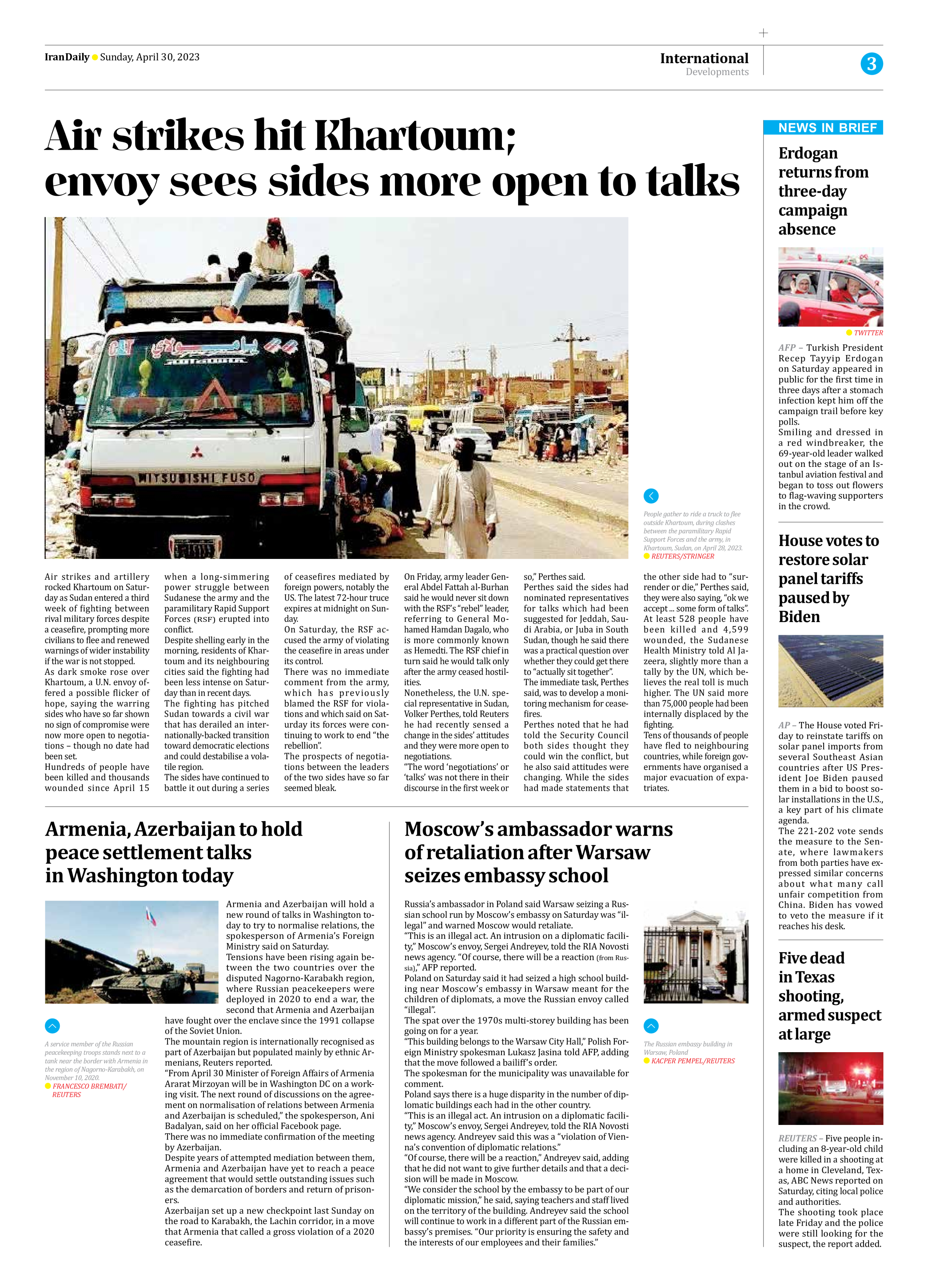
Air strikes hit Khartoum; envoy sees sides more open to talks
Air strikes and artillery rocked Khartoum on Saturday as Sudan entered a third week of fighting between rival military forces despite a ceasefire, prompting more civilians to flee and renewed warnings of wider instability if the war is not stopped.
As dark smoke rose over Khartoum, a U.N. envoy offered a possible flicker of hope, saying the warring sides who have so far shown no sign of compromise were now more open to negotiations – though no date had been set.
Hundreds of people have been killed and thousands wounded since April 15 when a long-simmering power struggle between Sudanese the army and the paramilitary Rapid Support Forces (RSF) erupted into conflict.
Despite shelling early in the morning, residents of Khartoum and its neighbouring cities said the fighting had been less intense on Saturday than in recent days.
The fighting has pitched Sudan towards a civil war that has derailed an internationally-backed transition toward democratic elections and could destabilise a volatile region.
The sides have continued to battle it out during a series of ceasefires mediated by foreign powers, notably the US. The latest 72-hour truce expires at midnight on Sunday.
On Saturday, the RSF accused the army of violating the ceasefire in areas under its control.
There was no immediate comment from the army, which has previously blamed the RSF for violations and which said on Saturday its forces were continuing to work to end “the rebellion”.
The prospects of negotiations between the leaders of the two sides have so far seemed bleak.
On Friday, army leader General Abdel Fattah al-Burhan said he would never sit down with the RSF’s “rebel” leader, referring to General Mohamed Hamdan Dagalo, who is more commonly known as Hemedti. The RSF chief in turn said he would talk only after the army ceased hostilities.
Nonetheless, the U.N. special representative in Sudan, Volker Perthes, told Reuters he had recently sensed a change in the sides’ attitudes and they were more open to negotiations.
“The word ‘negotiations’ or ‘talks’ was not there in their discourse in the first week or so,” Perthes said.
Perthes said the sides had nominated representatives for talks which had been suggested for Jeddah, Saudi Arabia, or Juba in South Sudan, though he said there was a practical question over whether they could get there to “actually sit together”.
The immediate task, Perthes said, was to develop a monitoring mechanism for ceasefires.
Perthes noted that he had told the Security Council both sides thought they could win the conflict, but he also said attitudes were changing. While the sides had made statements that the other side had to “surrender or die,” Perthes said, they were also saying, “ok we accept ... some form of talks”.
At least 528 people have been killed and 4,599 wounded, the Sudanese Health Ministry told Al Jazeera, slightly more than a tally by the UN, which believes the real toll is much higher. The UN said more than 75,000 people had been internally displaced by the fighting.
Tens of thousands of people have fled to neighbouring countries, while foreign governments have organised a major evacuation of expatriates.







